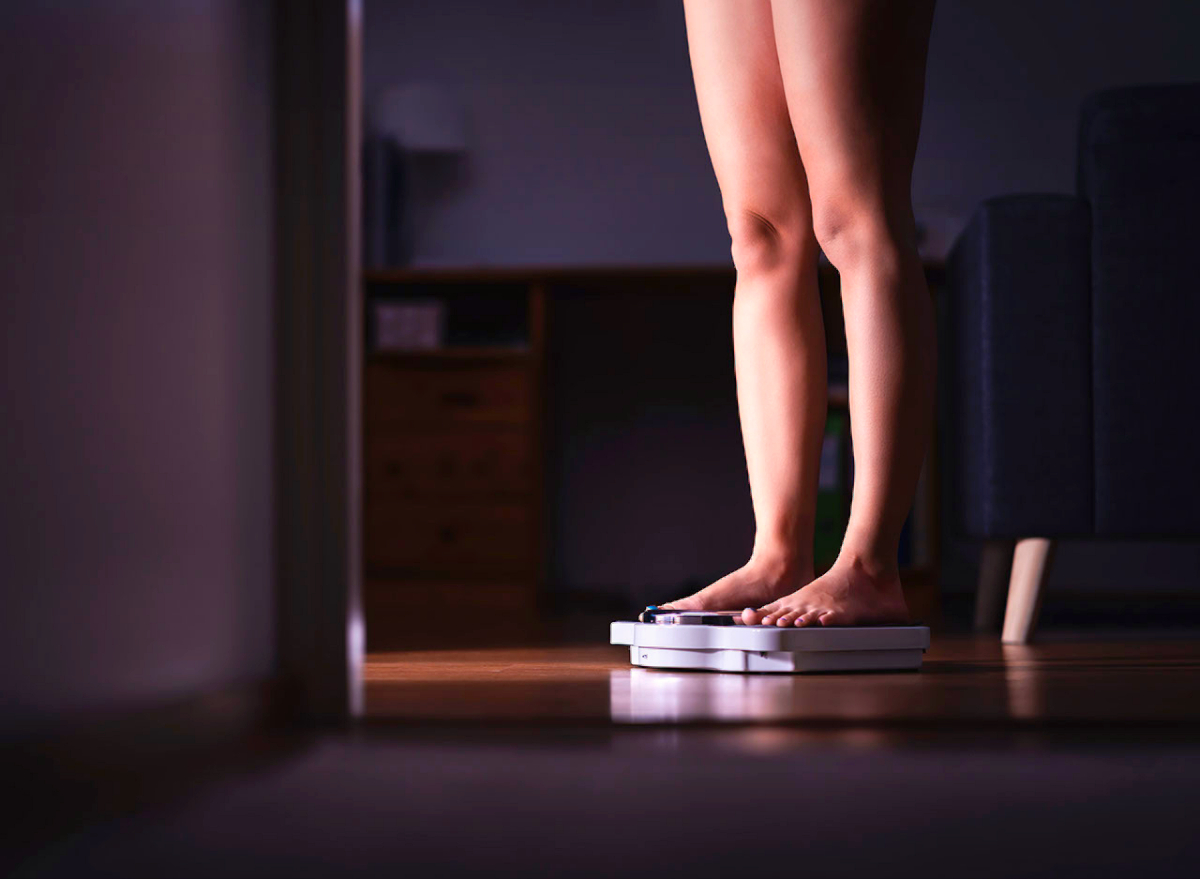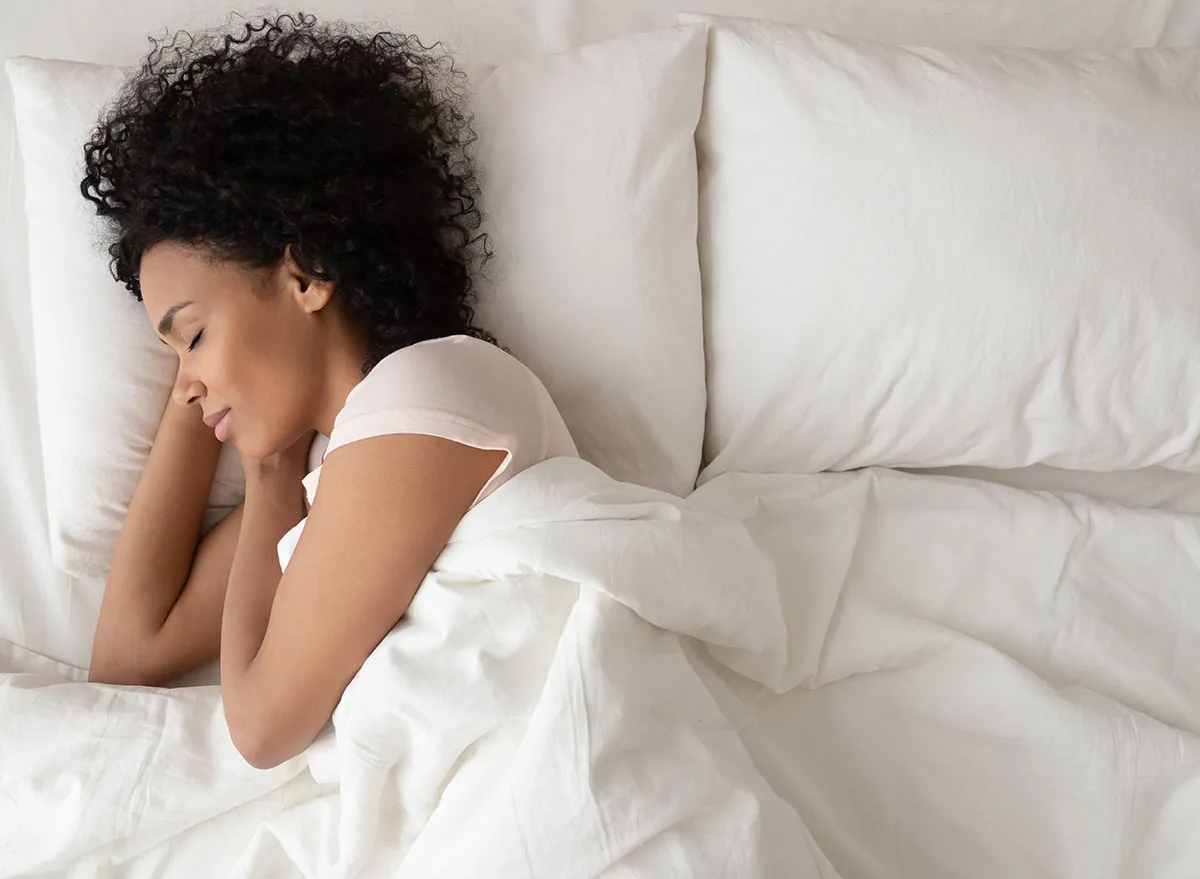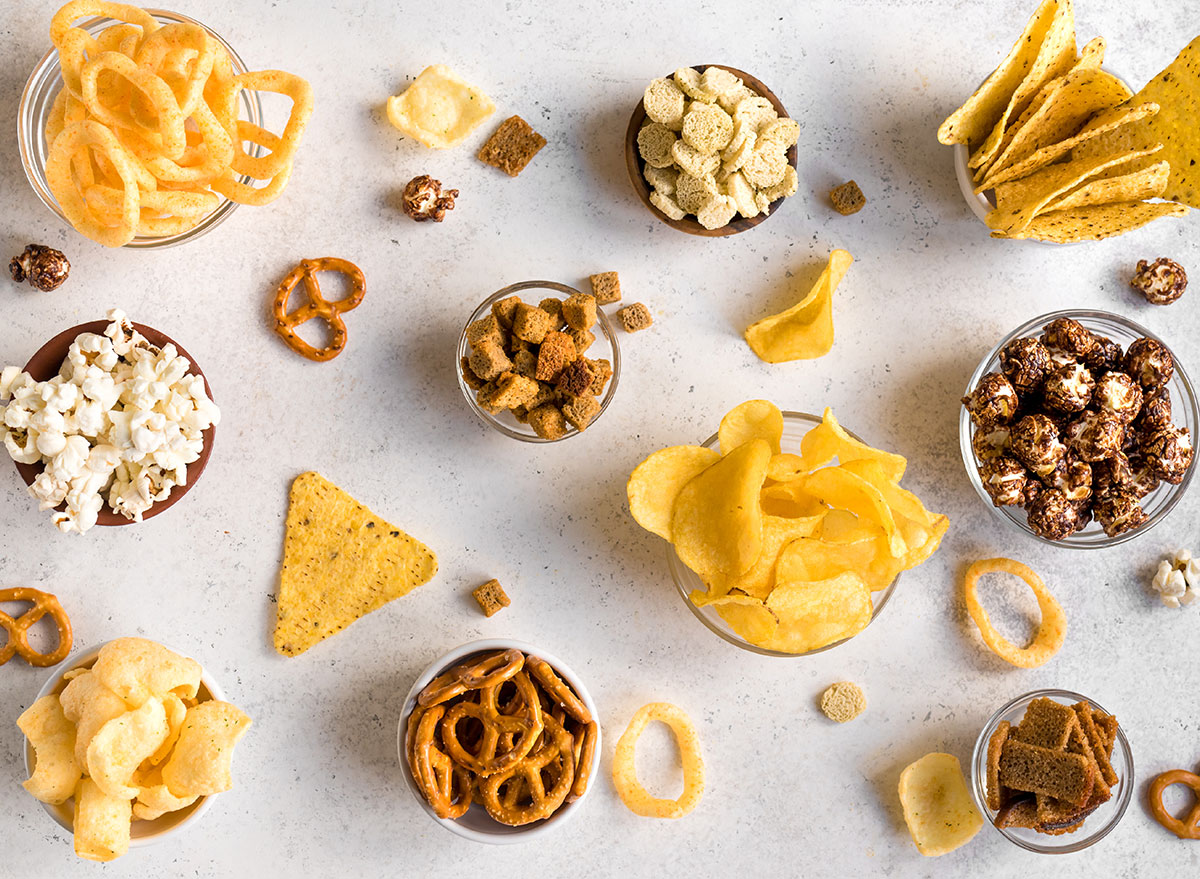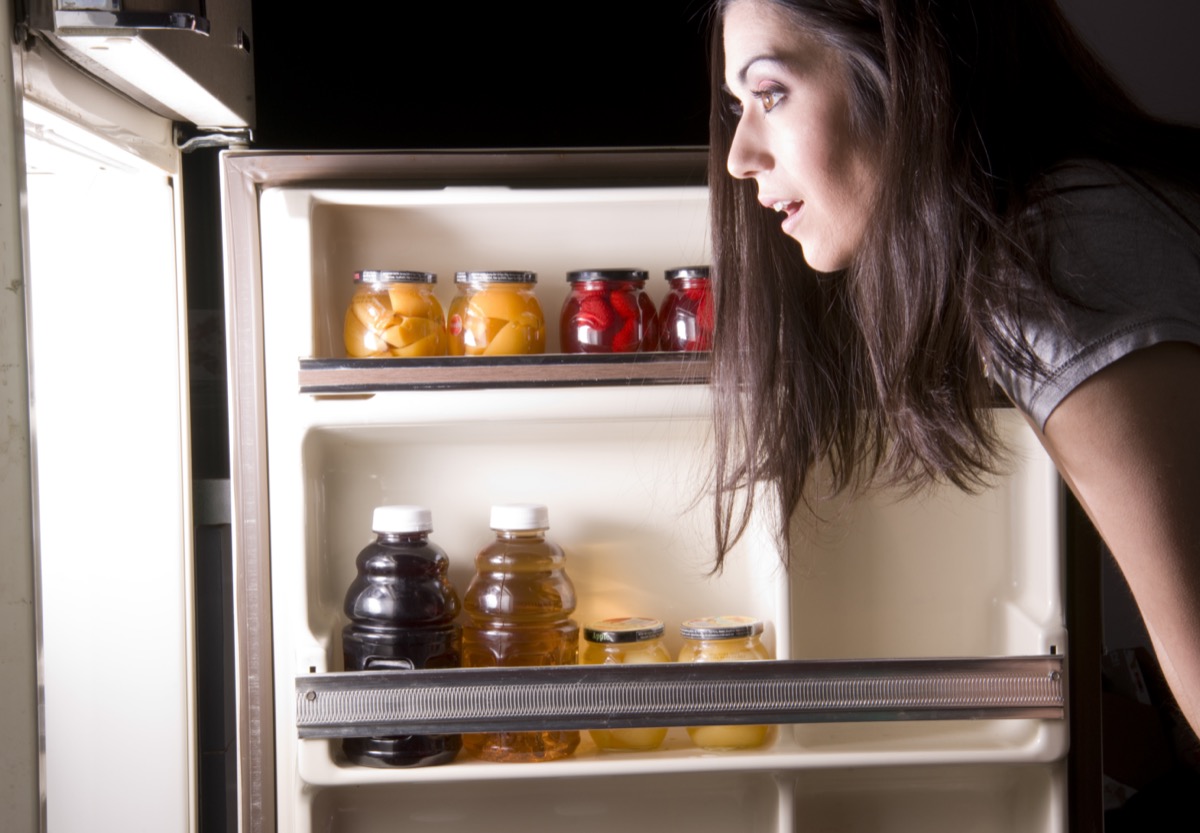One Major Side Effect Not Sleeping Enough Has on Weight Gain, New Study Says

We’ve all got days we’re lethargic, maybe even cranky—when suddenly, the thought of an indulgent snack seems like the perfect way to brighten the mood. A candy bar or bag of chips may be an OK pick-me-up on occasion. However, new research suggests that lazy feeling may be associated with your calorie consumption in a way you never realized. The good news is, you might be able to fix it.
We all know that too much snacking can lead to weight gain and even obesity in the long-term, but to kick a snacking habit is usually easier said than done. The problem seems to affect a lot of people, as a recent survey concluded that seven in 10 Americans never leave the house without a snack. Similarly, another poll found that just under half of surveyed Americans (48%) routinely keep a “snack stash” hidden away from even their closest loved ones for covert munching.
If you’ve been working to establish healthier habits, new research at the Ohio State University that was just published in the Journal of the Academy of Nutrition and Dietetics may interest you. Read on to learn more about the surprising connection between sleep patterns and snacking.
Sleep more, snack less

The research team at OSU reports that failing to attain at least seven hours of sleep per night is associated with eating more snacks that are high in carbohydrates, added fats, sugar, and caffeine.
So why does neglecting sleep lead to more snacking? The study’s authors explain that when we stay up late, we give ourselves more opportunities to carelessly chow down. It’s a simple equation: If you’re sleeping, you can’t be snacking!
Moreover, this research finds that pretty much everyone, regardless of sleep habits, prefers salty or sugary foods and non-alcoholic soft drinks when it’s snack time. This is one more reason people with poor sleep patterns end up ingesting more unhealthy calories on a daily basis.
It’s universally recommended that adults sleep for at least seven hours per night in order to maintain ideal health and wellbeing, and lack of sleep has long been linked to a long list of health issues like increased risk of heart disease and obesity. Still, this study takes things a step further by drawing a straight line from lack of sleep to more unhealthy snacking. “We know lack of sleep is linked to obesity from a broader scale, but it’s all these little behaviors that are anchored around how that happens,” said senior study author Christopher Taylor, professor of medical dietetics in the School of Health and Rehabilitation Sciences at The Ohio State University.
The research

The study analyzed data on nearly 20,000 American adults between the ages of 20 and 60 years old. All that information had originally been collected between 2007 and 2018 for the National Health and Nutrition Examination Survey, a health poll led by the Centers for Disease Control and Prevention (CDC). Each participant had filled out a series of dietary surveys asking about their daily eating and sleeping habits.
Using that data, the research team separated subjects into various categories based on the amount of sleep they were getting, the nutrition value of their usual snacks, and the usual time of day in which said snacking occurred.
A subsequent analysis produced a number of revelations. To start, most participants (95.5%) said they habitually ate at least one snack per day. Over 50% of all snacking calories among all participants came from—you guessed it—not-so-healthy foods and beverages such as soda, energy drinks, chips, cookies, and pastries.
Notably, in comparison to adults who routinely slept seven or more hours per night, those with less-than-ideal sleep patterns were more likely to eat a morning snack. They also consumed more snacks with little to no nutritional value in general.
This finding regarding morning snacking is important because it shows not all snacking occurs in the evening. One possible explanation for this is that those who don’t sleep enough requiring more caloric energy to get going in the A.M. (due to inadequate sleep).
Night snacking comes naturally

Another important element of these findings is the observation that nighttime snacking has particular consequences, since many people avoid workouts or strenuous activities.
The end result is that those extra calories go to bed with you, instead of being burned off with activity.
“At night, we’re drinking our calories and eating a lot of convenience foods,” Taylor explained. “Not only are we not sleeping when we stay up late, but we’re doing all these obesity-related behaviors: lack of physical activity, increased screen time, food choices that we’re consuming as snacks and not as meals. So it creates this bigger impact of meeting or not meeting sleep recommendations.”
Sleep for your health… and your diet

There are plenty of reasons to prioritize sleep, but researchers hope their findings encourage at least a few readers to hit the hay earlier. Besides just keeping you refreshed, a steady sleep schedule also promotes cleaner eating.
Meeting sleep recommendations is also tied to not doing the things that can harm health, Taylor concluded. “The longer we’re awake, the more opportunities we have to eat. And at night, those calories are coming from snacks and sweets. Every time we make those decisions, we’re introducing calories and items related to increased risk for chronic disease, and we’re not getting whole grains, fruits and vegetables.
“Even if you’re in bed and trying to fall asleep, at least you’re not in the kitchen eating,” Taylor said, “so if you can get yourself to bed, that’s a starting point.”
Get more food and wellness news here:
- One Major Side Effect of Caffeine on Your Vitamin D Levels, New Study Says
- Signs Delta is in Your Brain, Warn Doctors
- 99% of Store-Bought Chicken Is Affected by This Disease, New Report Says